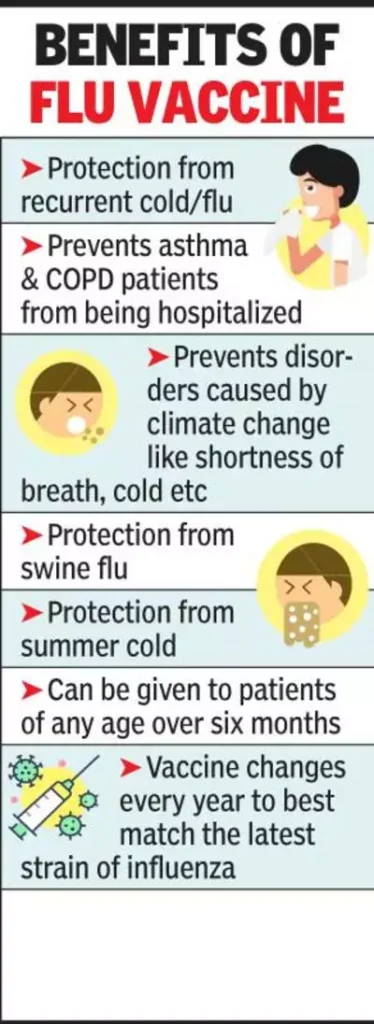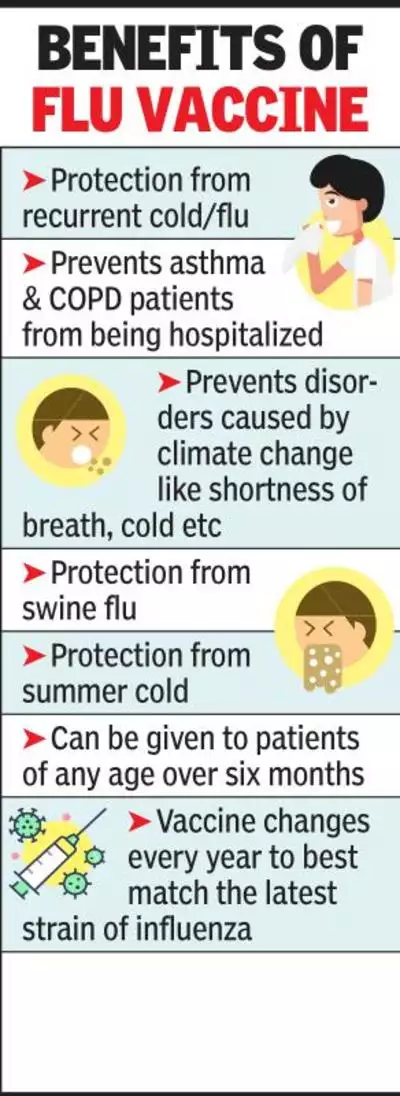
- INTRODUCTION
- UNDERSTANDING INFLUENZA
- THE BENEFITS OF INFLUENZA VACCINE
- MISCONCEPTIONS AND MYTHS
INTRODUCTION
Influenza, commonly known as the flu, is a highly contagious respiratory illness that affects millions of people worldwide each year. The influenza virus can cause severe illness, hospitalizations, and even death, particularly among vulnerable populations such as the elderly, young children, and individuals with compromised immune systems. However, there is a powerful tool available to prevent the spread of influenza and its potentially devastating consequences: the influenza vaccine. In this blog post, we will explore the importance of the influenza vaccine, its benefits, and address common misconceptions surrounding its use.
UNDERSTANDING INFLUENZA
To fully appreciate the significance of the influenza vaccine, it is essential to understand the nature of the virus itself. Influenza is caused by different strains of the influenza virus, which can rapidly mutate and evolve. This constant evolution makes it challenging to develop effective treatments and control measures. The flu virus spreads through respiratory droplets when an infected person coughs, sneezes, or talks, making it highly contagious. Symptoms of influenza include fever, cough, sore throat, body aches, fatigue, and respiratory distress.
THE BENEFITS OF THE INFLUENZA VACCINE
The influenza vaccine is a safe and effective way to protect ourselves and those around us from the flu. Here are some key benefits of getting vaccinated:
1. Prevention: The primary goal of the influenza vaccine is to prevent infection. Vaccination stimulates the immune system to produce antibodies that recognize and neutralize the influenza virus. By getting vaccinated, individuals can significantly reduce their risk of contracting the flu.
2. Reduced Severity: Even if vaccinated individuals still contract the flu, the vaccine can help reduce the severity and duration of the illness. Vaccinated individuals are less likely to experience severe complications, hospitalizations, or death compared to those who are unvaccinated.
3. Herd Immunity: Vaccination plays a crucial role in achieving herd immunity. When a significant portion of the population is vaccinated, it creates a protective barrier that limits the spread of the virus. This indirectly protects vulnerable individuals who cannot receive the vaccine due to medical reasons or age.
MISCONCEPTIONS AND MYTHS ABOUT THE INFLUENZA VACCINE :
Despite the overwhelming evidence supporting the benefits of the influenza vaccine, there are several misconceptions that can deter individuals from getting vaccinated. Let’s address some of these misconceptions:
1. Vaccine Effectiveness: Some people believe that the influenza vaccine is not effective because it does not provide 100% protection against all strains of the virus. While it is true that the vaccine’s effectiveness can vary from year to year due to the ever-changing nature of the virus, it still offers significant protection and reduces the severity of the illness.
2. Vaccine Safety: Concerns about vaccine safety are common. However, extensive research and rigorous testing ensure that influenza vaccines are safe for the general population. Serious side effects are rare, and the benefits of vaccination far outweigh the risks.
3. Getting the Flu from the Vaccine: Another misconception is that the influenza vaccine can cause the flu. In reality, the vaccine contains inactivated or weakened viruses that cannot cause the flu. Some individuals may experience mild side effects such as soreness at the injection site or low-grade fever, but these are temporary and not indicative of the flu.
CONCLUSION
The influenza vaccine is a vital tool in preventing the spread of the flu and its potentially severe consequences. By getting vaccinated, individuals not only protect themselves but also contribute to the well-being of their communities. It is crucial to address misconceptions surrounding the vaccine and promote accurate information to encourage widespread vaccination. Public health campaigns, education, and access to vaccines are essential in ensuring that as many people as possible receive the influenza vaccine. Let us embrace the power of vaccination and work together to reduce the burden of influenza on our society. Remember, by getting vaccinated, we protect ourselves, our loved ones, and those who are most vulnerable.
SOURCES : SIMPLIFIED .COM , https://images.app.goo.gl/H4gLn8r8v2yKFFR36

